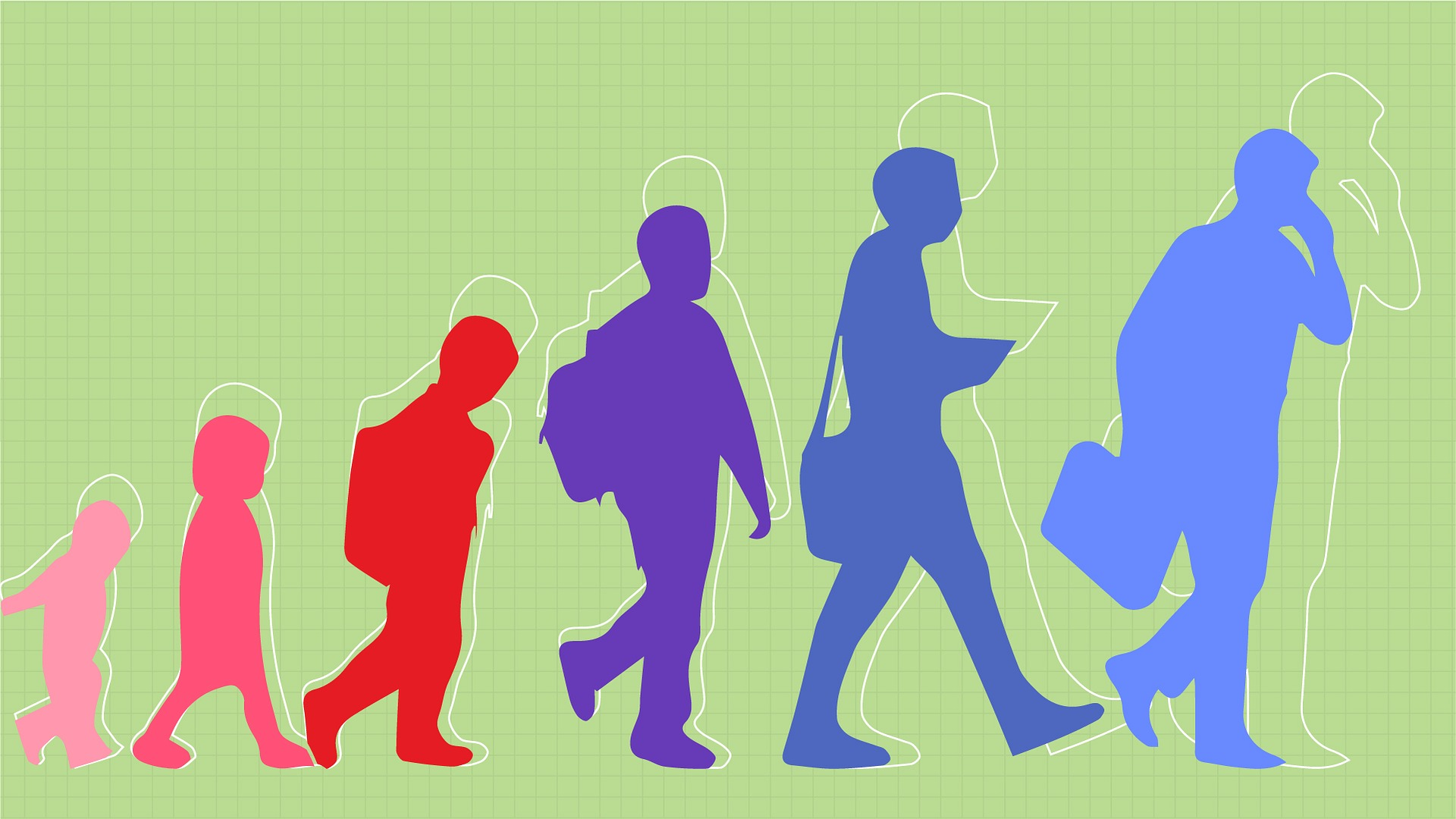
Change in Adulthood: Embracing Transformation in Life
Change in adulthood is a compelling journey that many individuals experience, often reshaping their identities and perspectives throughout their lives. At this stage, personal development takes on new dimensions as people face various life transitions, from career shifts to adapting to family dynamics. Embracing change can be daunting, yet it is crucial for psychological growth and self-improvement. Understanding the psychology of change allows individuals to navigate through life’s inevitable challenges, enhancing their adaptability and resilience. As we analyze adult development, it becomes evident that embracing change is not merely an option, but a vital aspect of a fulfilling life.
As we delve into the evolution of individuals in their later years, it becomes apparent that transformation is a universal experience. Adult life is often marked by significant milestones, which can serve as catalysts for self-reflection and growth. The exploration of personal evolution highlights the necessity of adapting our perspectives and behaviors, ultimately leading to a richer understanding of ourselves. By investigating the dynamics of how we change, we can appreciate the nexus between self-awareness and lifelong learning. Recognizing the interplay of various factors influencing adult change can illuminate pathways for ongoing personal and professional growth.
The Psychology of Change: Understanding Personal Transformation
Change is an inherent aspect of our lives, and it shapes who we are at fundamental levels. As we navigate through life’s ups and downs, understanding the psychology of change becomes crucial. It encompasses the myriad ways we evolve emotionally, intellectually, and socially. Psychologists like Robert Waldinger emphasize that resisting change often leads to suffering, whereas embracing it allows us to thrive. Personal development is not merely about achieving goals; it’s a continuous journey that involves learning from our experiences and the gradual transformation of our beliefs and attitudes.
Moreover, the underlying mechanism of change can be explored through various lenses, including psychological theories and personal stories. For instance, Mahzarin Banaji’s work on implicit bias illustrates that our perceptions and behaviors can shift dramatically when we are confronted with new information or experiences. This internal exploration is vital in personal development, as it empowers individuals to break free from the constraints of past narratives and embrace a more fluid identity.
Embracing Change in Adulthood: The Journey of Self-Improvement
The change in adulthood is a significant focus in psychological research, particularly as it relates to personal development. Contrary to the traditional belief that personality remains static after adolescence, studies have shown that adults can undergo substantial transformations throughout their lives. This realization encourages individuals to actively seek self-improvement and to understand that change is not only possible but can also lead to greater happiness and fulfillment. Richard Weissbourd, who highlights moral development, points out that our capacity for empathy and connection evolves over time, shaping our relationships and, by extension, our overall well-being.
Adulthood brings unique challenges and opportunities for change. Life events such as career shifts, parenthood, or loss catalyze personal growth and often prompt individuals to reassess their values. This journey of self-improvement is further complicated by societal expectations and personal fears. Yet, as individuals navigate these transitions, they are often called to embrace change actively rather than resist it. Understanding that each phase of adulthood offers new lessons can empower individuals to cultivate resilience and adaptability, ultimately enhancing their quality of life.
The Role of Disillusionment in Personal Change
Disillusionment is a powerful catalyst for change that is frequently overlooked in discussions of personal development. As individuals encounter setbacks or unmet expectations, their responses can either lead to bitterness or prompt significant growth. Richard Weissbourd notes that while many may withdraw into cynicism, others harness disillusionment as an opportunity to develop a broader understanding of their reality. This dichotomy reflects the variety of pathways available to individuals confronting the discomforts of change, emphasizing that personal transformation can arise from even the most challenging experiences.
Moreover, the psychology of change suggests that embracing disillusionment can lead to deeper self-awareness and strengthen one’s resolve toward self-improvement. The acknowledgment of change brings forth the potential for new insights, driving home the idea that resilience in the face of adversity is a crucial aspect of personal development. As we learn to navigate our disappointments, we broaden our capabilities and reshape our identities, ultimately fostering a mindset that acknowledges change as a vital and enriching part of life.
The Importance of Lifelong Learning and Adaptation
Lifelong learning is a critical component of personal development that complements the understanding of change, especially in adulthood. As individuals progress through various stages of life, the acquisition of new skills and knowledge becomes paramount in adapting to evolving circumstances. This ongoing commitment to learning not only enhances personal growth but also instills a sense of curiosity and openness to experience. As Robert Waldinger points out, the idea of continuous self-improvement is rooted in the belief that we can and should develop, not just in our careers but in our interactions with others and ourselves.
Furthermore, the journey of lifelong learning allows individuals to redefine their identities and reshape their narratives. Engaging in new activities or pursuing education at any stage in life allows individuals to challenge their limits and embrace change. Whether joining a community class or diving into self-directed learning, the opportunities for growth are endless. This adaptability is essential for navigating the complexities of adulthood, illustrating how the pursuit of knowledge aligns perfectly with the psychology of change.
Self-Concept and Its Influence on Change
Self-concept plays a critical role in how individuals perceive and respond to change in their lives. Our internal narratives often dictate how willing we are to embrace new experiences or ideas, impacting our personal development significantly. Many may feel trapped in a fixed identity shaped by past experiences or societal expectations, creating a sense of stagnation. Mahzarin Banaji’s exploration of implicit biases highlights how our self-perceptions can inhibit our capacity for change. When people view themselves through a narrow lens, they may miss opportunities for growth and transformation.
However, understanding and reshaping one’s self-concept can unlock a pathway to embracing change more fully. Psychologists emphasize the importance of recognizing that our narratives can evolve, encouraging a more flexible and dynamic view of identity. By reframing personal histories and challenging preconceived notions, individuals can foster resilience and adaptability, allowing for meaningful change to take place. This shift eventually leads to enhanced self-acceptance while promoting continuous self-improvement, illustrating the powerful interplay between self-concept and personal development.
Coping with Fear and Resistance to Change
Fear often serves as a significant obstacle to personal change, dictating how we react to new situations and influences. As individuals contemplate change, they may grapple with anxiety about the unknown, leading to resistance that prevents growth. This is particularly relevant in a society that often celebrates tradition and stability. Understanding the psychology behind this fear is crucial for personal development, as it allows individuals to confront their apprehensions and reframe their approach to change. Waldinger suggests that recognizing and addressing these fears is an essential step toward fostering a more open mindset.
Overcoming fear requires not just acknowledgment but also proactive strategies to build resilience. It may involve deep reflection and small, manageable steps toward change that allow for gradual adjustment. Embracing discomfort can ultimately lead to newfound confidence and a willingness to pursue transformation. By cultivating a supportive environment that encourages exploration and values effort over perfection, individuals can learn to navigate their fears more effectively, paving the way for personal growth and adaptation.
The Impact of Social Relationships on Change
Social relationships profoundly influence personal development and the capacity for change. The connections we cultivate can either support our growth or reinforce existing patterns of behavior. Richard Weissbourd’s insights into moral development emphasize the importance of forging meaningful relationships that promote empathy and understanding. These connections not only enhance our lives but also serve as catalysts for potential transformation, allowing us to share experiences and learn from one another. Engaging with diverse perspectives can expand our understanding of ourselves and the world, facilitating change.
Moreover, social networks often provide emotional support during times of transition, making it easier to grapple with the complexities of change. Negative influences, on the other hand, may trap individuals in cycles of stagnation, highlighting the need to curate relationships that align with our personal growth goals. As we navigate adulthood, it’s vital to identify and foster connections that encourage self-improvement and embrace the inevitable changes that life brings. By prioritizing healthy relationships, we empower ourselves to thrive in an ever-changing landscape.
The Role of Cultural Context in Change
Cultural context plays a essential role in shaping how individuals perceive and respond to change. Different cultures have varying attitudes towards transformation and self-improvement, influencing the paths individuals take throughout their lives. Mahzarin Banaji’s experiences in Indian culture illustrate this dynamic, highlighting that some societies may prioritize stability, while others encourage risk-taking and adaptability. These cultural nuances affect personal development significantly, as they often dictate what is considered acceptable change and how individuals should pursue self-improvement.
Understanding the role of cultural context allows individuals to navigate their personal journeys more effectively. By recognizing these influences, people can challenge societal norms that may limit their potential for change. Embracing a broader perspective that incorporates diverse cultural viewpoints can enrich the personal development process, inspiring individuals to explore different avenues of growth. Ultimately, fostering a more inclusive understanding of change helps pave the way for transformative experiences across various social and cultural landscapes.
Resilience: A Key Factor in Embracing Change
Resilience is arguably one of the most important traits in our ability to embrace change. Defined as the capacity to recover and adapt in the face of adversity, resilience allows individuals to navigate life’s challenges with greater ease. Waldinger emphasizes that our relationship with change is complex and often fraught with emotional upheaval. Building resilience involves not just enduring hardship but actively using those experiences as a springboard for future growth and self-improvement. Through resilience, individuals can confront their discomfort with change and become more adept at managing uncertainty.
Developing resilience requires a proactive approach to personal challenges, emphasizing the importance of strategies such as self-reflection, stress management, and seeking support from others. Fostering a mindset that views setbacks as opportunities for growth can significantly alter how we experience change. This shift in perspective not only empowers individuals to embrace their own development but also enables them to inspire others to pursue similar paths. Ultimately, resilience becomes a powerful tool in navigating the complexities of change and adult development.
Frequently Asked Questions
What are effective strategies for embracing change in adulthood?
Embracing change in adulthood often requires a proactive approach. Strategies include setting personal development goals, practicing mindfulness to stay present, and developing resilience through empathy and understanding. Engaging in self-improvement activities, such as workshops or therapy, can further enhance one’s ability to navigate change.
How does the psychology of change influence adult development?
The psychology of change plays a crucial role in adult development as it underscores the belief that individuals can adapt and grow at any stage of life. Factors such as self-awareness, emotional intelligence, and social support are significant for fostering an environment where positive change can thrive. Recognizing one’s biases also allows for growth and transformation.
What common barriers do adults face when trying to change?
Adults often encounter barriers such as fear of the unknown, fear of failure, and fixed mindset beliefs that inhibit change. These obstacles can lead to resistance, which may result in missed opportunities for personal growth and development. Overcoming these challenges typically requires a supportive network and a willingness to step outside comfort zones.
Can embracing change lead to more self-improvement in adulthood?
Absolutely! Embracing change is fundamental for self-improvement in adulthood. By accepting that change is a natural part of life, adults can unlock new opportunities for growth. This mindset allows individuals to adapt skills, pursue new interests, and cultivate a deeper understanding of themselves, contributing to overall well-being.
Why is acknowledging disillusionment important during life transitions?
Acknowledging disillusionment is vital during life transitions as it can influence how individuals respond to change. Recognizing feelings of disappointment allows for reflection and can lead to a more profound understanding of one’s life circumstances. By addressing these feelings, adults can pivot from cynicism to growth, fostering resilience and adaptability.
How can understanding the psychology of change enhance adult relationships?
Understanding the psychology of change can significantly enhance adult relationships by fostering empathy and open communication. When individuals appreciate that change affects everyone, they may become more supportive and understanding towards others. This creates healthier relational dynamics that encourage growth and collective development.
What role does age play in our ability to embrace change?
Age can influence our ability to embrace change, as individuals often experience shifts in perspective and priorities throughout their lives. Older adults may develop a greater acceptance of change, recognizing its inevitability, while younger adults might struggle with it due to a desire for stability. Awareness of these dynamics allows for tailored approaches to personal development.
How can one develop a positive mindset towards change in adulthood?
Developing a positive mindset towards change involves cultivating self-awareness, practicing gratitude, and re-framing negative thoughts into positive affirmations. Techniques such as journaling, mindfulness, and seeking mentorship can foster a constructive outlook, empowering individuals to navigate change with confidence and resilience.
| Key Point | Details |
|---|---|
| Constant Change | Change is inevitable and happens throughout our lives, influencing our experiences and perspectives. |
| Resistance to Change | Those who resist change may experience more suffering; embracing change can lead to growth. |
| Psychological and Biological Change | Significant changes occur in adulthood, influenced by both psychological growth and biological factors. |
| Impact of Experiences | Life events, both positive and negative, can push individuals toward change or make them resistant to it. |
| Cultural Influences | Society often pressures individuals to change; some cultures may embrace change while others may resist. |
| Self-Perception and Identity | Many individuals maintain a continuous internal narrative, causing them to overlook substantial personal changes over time. |
| Openness to Change | Individual differences, such as temperament and life experiences, affect how open one is to change. |
| The Role of Disillusionment | Negative experiences can lead to cynicism, while others may grow and thrive post-disillusionment. |
Summary
Change in adulthood is a crucial aspect of life that shapes our identities and experiences. Throughout adulthood, individuals undergo various changes, whether intentional or not, impacting their perception of themselves and the world around them. The ongoing conversation about change in adulthood emphasizes the importance of embracing transformation, as resisting it often leads to suffering. Understanding these dynamics can help foster personal growth and navigate the complexities of life’s journey.



